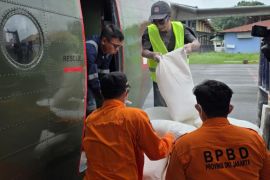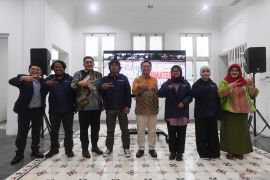Nusa Dua (Antara Bali) - US Ambassador to Indonesia Joseph R. Jonovan has encouraged tourism stakeholders to reduce the amount of waste being generated in the tourism sector as it empties into waterways, beaches, and the sea in Bali.
"Bali annually receives about 12 million domestic and foreign tourists who produce a large amount of garbage that can pollute waterways, beaches, and the sea in Bali," Jonovan said at the opening of the `Marine Pollution Reception` in Nusa Dua, Bali, on Thursday night.
The event was organized in cooperation with the Bali Hotel Association.
The US envoy pointed out that Indonesia is the second largest global producer of plastic waste that pollutes the ocean.
"However, I have heard from President Joko Widodo and Coordinating Minister for Maritime Affairs Luhut Binsar Panjaitan that Indonesia has taken certain steps to tackle marine pollution," Jonovan remarked.
The US ambassador noted that he believed that the efforts of the central and local governments in the country to deal with this problem of marine pollution will yield swift and visible results.
The Indonesian government aims to bring down the approximately nine million tons of the total plastic waste a year by about 70 percent.
"We have set this target in our medium-term plan," Environment and Forestry Minister Siti Nurbaya informed during a campaign against plastic waste on the sidelines of the "World Ocean Summit" in Samuh Beach, Nusa Dua, on Thursday.
Taking into the account the fact that 14 percent of the total 65 million tons of waste in Indonesia is plastic that has a detrimental effect on the environment, Nurbaya advocated the need for greater synergy between the central and local governments to uphold the commitment to reduce plastic waste.
According to the minister, those working to protect the environment cannot do so in an optimal manner if there is no support and commitment from the government.
At the same time, the ministry is still discussing and evaluating a plan to continue imposing a tariff on using plastic bags. Such a tariff was earlier imposed in shopping centers and modern shops on a trial basis.
Nurbaya pointed out that the move did help to significantly reduce plastic waste. However, the government should also take into account the aspirations and interests of the merchants, retailers and producers of plastic.(WDY)









